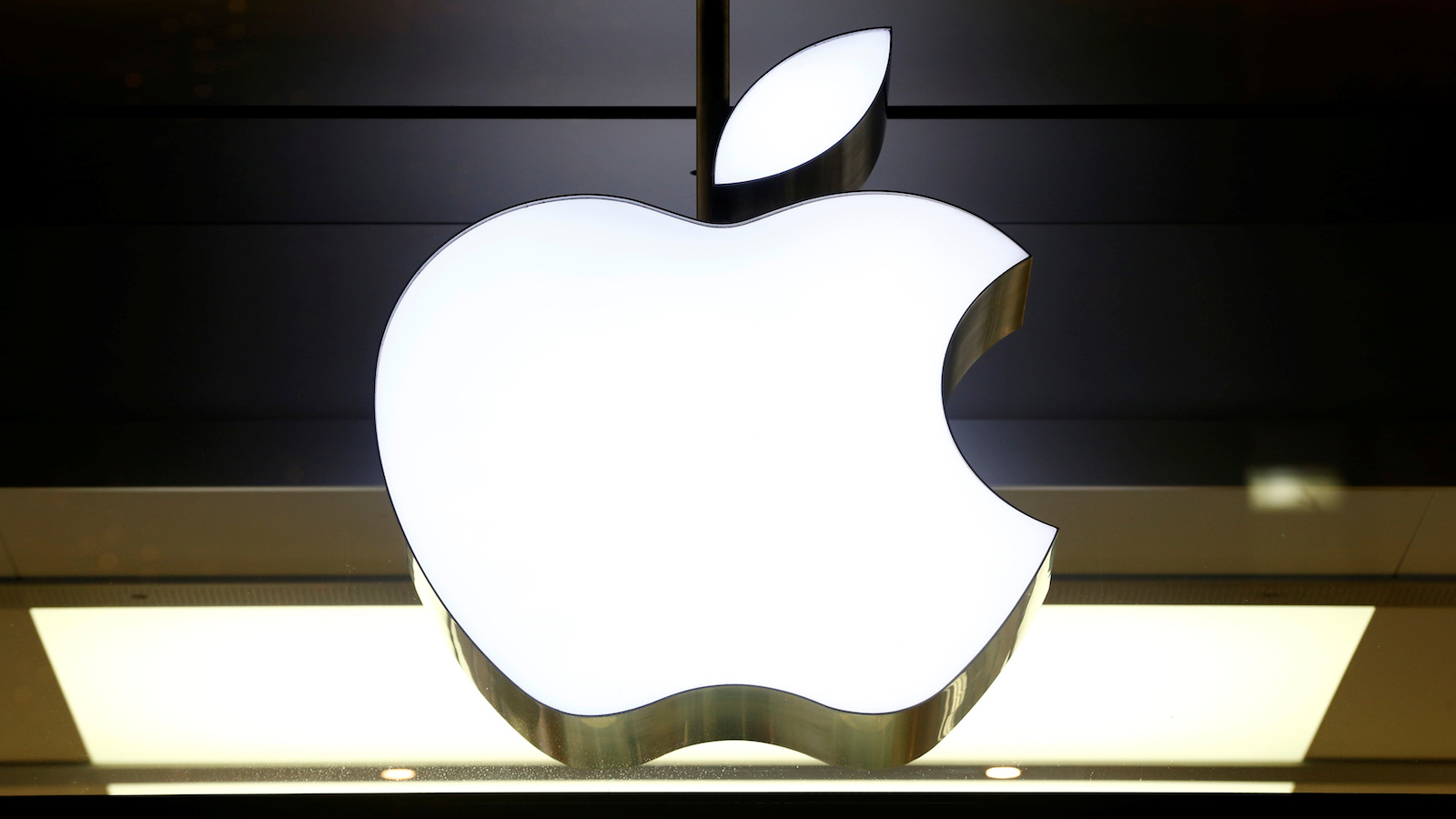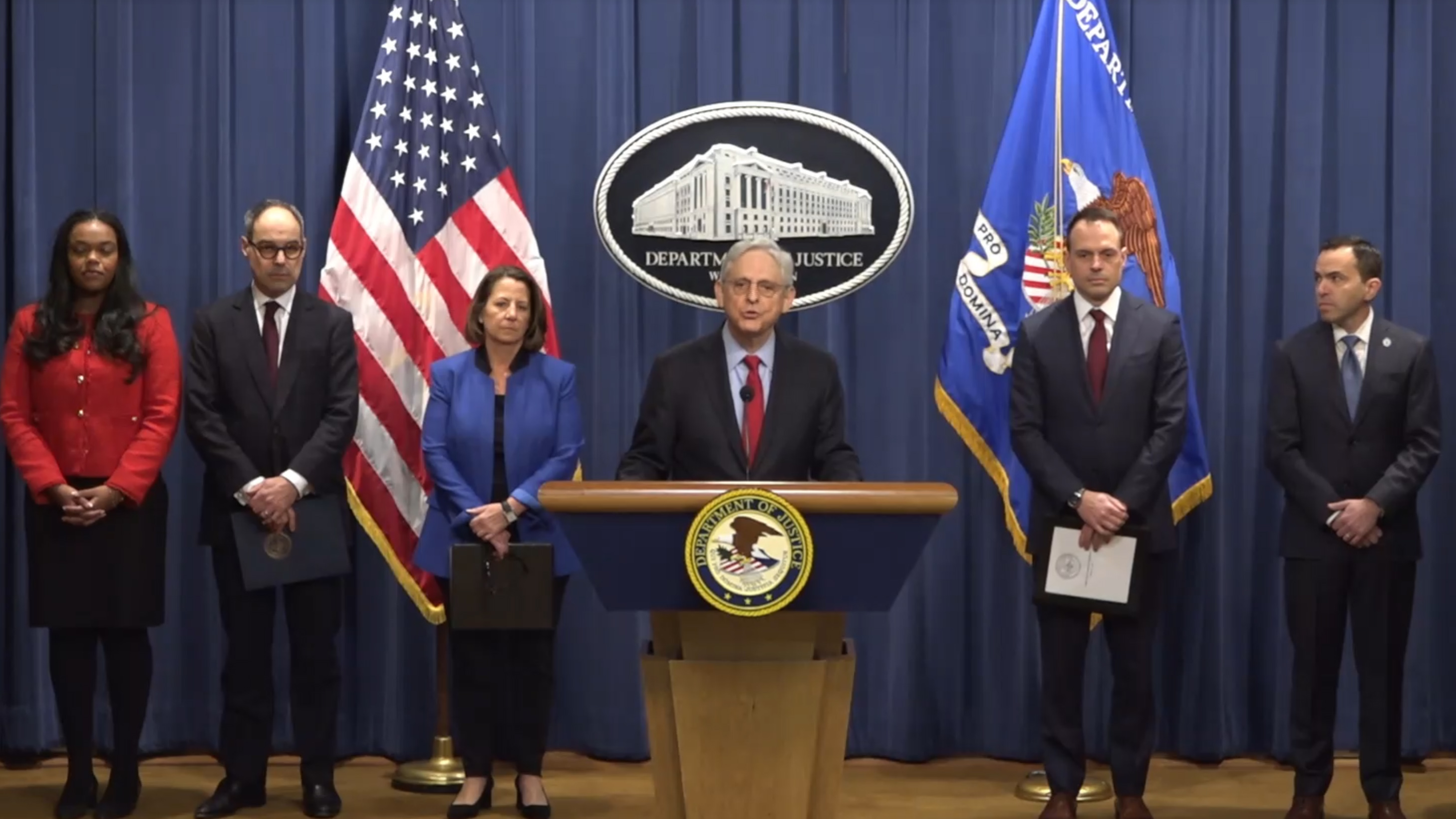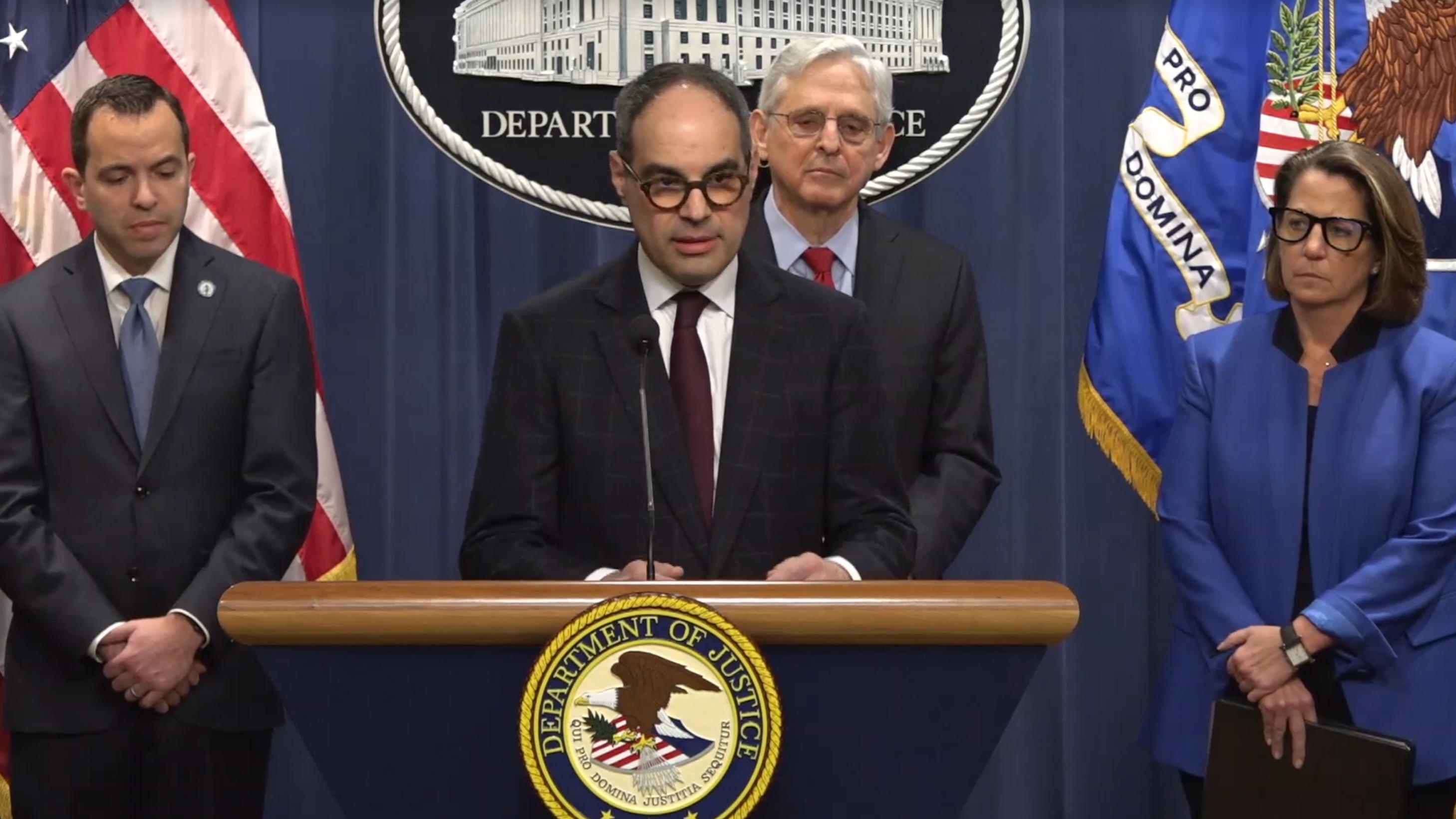The US sues Apple for monopoly antitrust violations, says the company has smothered an entire industry
Apple says the US is wrong on the facts and it will defend

The United States Department of Justice, along with the Attorneys General from 15 states and the District of Columbia, filed suit against Apple for violating Section 2 of the Sherman Antitrust Act, the federal law that limits the power of a company with a monopoly.
According to the Apple lawsuit, the tech giant has made it difficult for developers to expand the capabilities of the iPhone, made it difficult to leave the iPhone, and generally made the entire smartphone market worse as a result, among numerous allegations.
In a video briefing, US Attorney General Merrick Garland explained that Apple holds a 65% share of the US smartphone market. Garland asserts that “Apple has maintained monopoly power in the smartphone market not simply by staying ahead of the competition on the merits, but by violating federal antitrust law.”
In response, Apple points out that it holds only a 20% global share of the smartphone market, and it competes globally, not just in the US.
Apple withheld critical access from developers
The lawsuit breaks down into three primary complaints. The first is that Apple is “Selectively imposing contractual restrictions on, and withholding critical access points from, developers.” That is, while other smartphones allow developers access to hardware features like tap-to-pay, Apple locks this hardware to its own Apple Pay platform. On other phones, you might tap to pay with Venmo or PayPal instead of Google Wallet. On the iPhone, every transaction goes through Apple Pay, and Apple takes a big cut.
Additionally, limiting access to the phone’s hardware means that accessories like smartwatches are not interoperable. You cannot use the latest Galaxy Watch with the latest Apple iPhone. You also can’t use an Apple Watch with anything but an iPhone, and that means Apple Watch buyers are unfairly committed to buying iPhone after iPhone, according to the US government.
Apple makes it harder to leave Apple products
The second complaint is that Apple “undermines apps, products, and services that would otherwise make users less reliant on the iPhone, promote interoperability, and lower costs for consumers and developers.” Of course this is the iMessage and green bubble argument, taken much further.
Get daily insight, inspiration and deals in your inbox
Sign up for breaking news, reviews, opinion, top tech deals, and more.
Apple hasn’t just locked users to its own messaging platform, it has actively worked to make the competition’s messaging platform worse. If you send a video from an iPhone to an Android, the Android user will see a grainy, pixelated video, as Garland explained. That leaves iPhone owners with the impression that Android phones are sub-par, when in fact it is Apple that is diminishing the quality, not the Android device.

In Garland’s opinion, and the opinion of the 16 other Attorneys General who filed the suit along with the US Justice Department, Apple should be retaining customers by making its own products better, not by making its competitors products worse. Apple should keep buyers on its platform by making the best phone, not by making it impossible or cost-prohibitive to switch away from Apple’s products.
Garland also cites Apple’s blockade on so-called "Super Apps,” which are single apps that run multiple apps within. Think of Xbox Cloud Gaming, where you launch the Xbox app then have access to all of your Xbox game apps within the Xbox environment. That app has been blocked on Apple’s App Store, though Apple does claim it allows super apps to run on the iPhone.
Apple uses its power to charge more money
The third complaint detailed in the lawsuit says Apple “exercises monopoly power to extract more money from consumers, developers, content creators, artists, publishers, small business, and merchants, among others.” The government did not offer specific examples for this argument, but presumably Apple’s App Store policies, along with its Apple Pay lock-in, will come under intense scrutiny over the course of the suit.
Apple seems to have dug its own grave with this antitrust suit, and many of the examples offered by Garland and the other Attorneys General come straight from the horse’s mouth. Garland specifically cited a notorious incident in which LiQuan Hunt from Vox Media was complaining to CEO Tim Cook that he could not text his Mom, and Cook rather coolly suggested to Hunt that Hunt should “buy your mom an iPhone,” in a moment reminiscent of Marie Antoinette.

Jonathan Kanter, the head of antitrust at the Department of Justice, used an example from 2010 in which an Apple executive emailed Steve Jobs about a Kindle advertisement that showed Kindle working on both iPhone and Android. The exec was concerned that the “message that can’t be missed is that it is easy to switch from iPhone to Android. Not fun to watch.”
From this, Kanter says it is clear that Apple’s goal was to make it hard to switch when it should have been Apple’s goal to make consumers want to stay. In a 2013 email message, another Apple exec said that supporting iMessage on Android “would simply serve to remove [an] obstacle to iPhone families giving their kids Android phones,” according to Garland. Switching will be an ongoing theme in the lawsuit, it seems.
Apple says that the case is wrong on the facts and law
We believe this lawsuit is wrong on the facts and the law, and we will vigorously defend against it
Apple
We talked to Apple about the situation, and put simply, Apple is not having it. It characterized the DOJ’s case as meritless and plans to seek immediate dismissal.
“At Apple, we innovate every day to make technology people love—designing products that work seamlessly together, protect people’s privacy and security, and create a magical experience for our users. This lawsuit threatens who we are and the principles that set Apple products apart in fiercely competitive markets. If successful, it would hinder our ability to create the kind of technology people expect from Apple—where hardware, software, and services intersect. It would also set a dangerous precedent, empowering government to take a heavy hand in designing people’s technology. We believe this lawsuit is wrong on the facts and the law, and we will vigorously defend against it.”
Apple argues that its smartphone business is a global business and a highly competitive one at that. While Apple might have a 70% market share in the US, it sits at roughly 20% of the global market.
This may be key to Apple's argument since it believes the DOJ is trying to shoehorn the company into a Microsoft-circa-1990s mold. Back then, the DOJ successfully sued Microsoft for owning 95% of the desktop market and essentially defining who won the browser war.
Apple characterizes its business as, if not open, certainly not prescriptive. The company insists it permits "super apps" in the app store, has allowed streaming services to make changes; and, as we’ve reported here, is now offering limited RCS support; it’s not integrated in iMessage but will live alongside it.
Apple was keen to point out all the benefits the market and developers enjoy because of its approach. It claims a massive 374% growth in payments to app developers between 2014 and 2023. Apple also says iOS apps generate 85% more income than Android apps.
Also core to Apple's argument is that it feels government officials should not be defining tech features or acting as proxy engineers, and it believes this point was made in the recent Epic versus Apple case. In that case, the judge wrote “Apple’s evidence strongly suggests that low switching between operating systems stems from overall satisfaction with existing devices, rather any ‘lock-in.’”
Apple’s approach is rooted in providing the best iPhone customer experience and a strict adherence to privacy and security principles. Unfortunately, it is those principles that the Department of Justice calls into question, since Apple’s policies on iMessage interoperability make messages less secure when they are sent between Apple and Android phones.
This case could lead to the homogenization of the Apple iPhone, making it more like the best Android phones and, Apple claims, possibly less secure and private. Finally, Apple insists that iPhone customers stick with Apple not because of the high cost of switching but because they love the company and the product.
Apple maintains that a "high cost of switching" doesn't even exist.

Phil Berne is a preeminent voice in consumer electronics reviews, starting more than 20 years ago at eTown.com. Phil has written for Engadget, The Verge, PC Mag, Digital Trends, Slashgear, TechRadar, AndroidCentral, and was Editor-in-Chief of the sadly-defunct infoSync. Phil holds an entirely useful M.A. in Cultural Theory from Carnegie Mellon University. He sang in numerous college a cappella groups.
Phil did a stint at Samsung Mobile, leading reviews for the PR team and writing crisis communications until he left in 2017. He worked at an Apple Store near Boston, MA, at the height of iPod popularity. Phil is certified in Google AI Essentials. He has a High School English teaching license (and years of teaching experience) and is a Red Cross certified Lifeguard. His passion is the democratizing power of mobile technology. Before AI came along he was totally sure the next big thing would be something we wear on our faces.
- Lance UlanoffEditor At Large